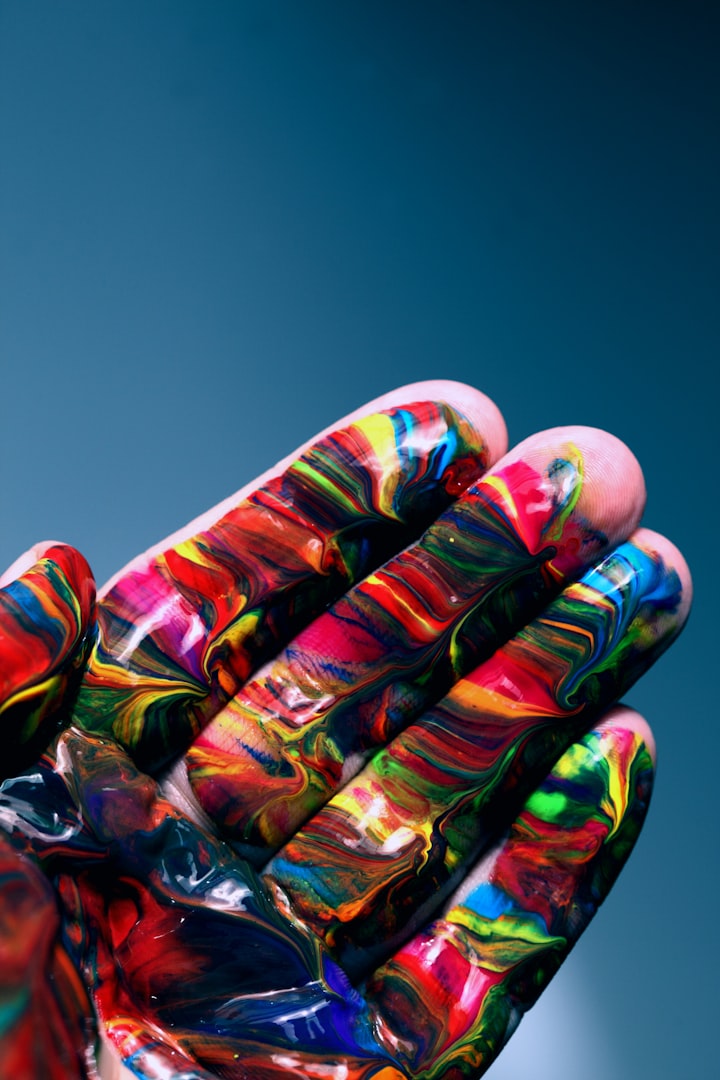Beyond "Neurodivergent"
We Have the Ability to Compete with the Rest of You

Recently, a post from an acquaintance of mine had been prodding and nagging at me. The post had been intended as a compliment to her young child, but something about it made me more restless than compliments made by others. The post began with "Life with my Neurodivergent child and his amazing mind..." Something about this statement is presumed to be more educated than others simply by the word choice "neurodivergent." She went on to brag about how easily and creatively he made up a story, which I give her credit regarding. Still, somehow, I found the statement unfair. As much credit as it gave to her child, it still felt like a slight. Perhaps it was my erroneous perception, but nonetheless it inspired something in me to write.
My restless mind asked itself, "Why did she have to state that he was "neurodivergent"? Did the child deserve a separate category to accommodate him? Wasn't what he did worthy of childhood praise as a whole?"
Don't get me wrong, I have absolutely NO issue with neurodivergence. If you've read some of my prior stories, you will know that I, too, am considered "neurodivergent." My point is, "neurodivergent" individuals are most certainly equally as worthy of praise as "neurotypical" individuals. We can compete in the same fields and markets despite our differences. Some may need to learn differently, be guided, etc., but they are no less human or capable of things than the other. Even a "neurotypical" individual can need taught differently depending on whether they learn best visually, auditorily, or kinesthetically, for instance.
I am sure many individuals want to raise awareness for individuals with certain brain processes, and that in itself is commendable. While their intentions and efforts are admirable, I must contest such statements on occasion, especially if it appears to take away notoriety, achievement, and independence from the said individual.
I once had a psychology professor say to me that we all have at least one psychological disorder. While some of us have more than one or tougher ones to handle, we all have something that differs in our own individual brain than in another's. Something about her statement struck a chord with me. I recall getting emotional when she said it in class just like I am now. It seemed to be the answer I was seeking. Who I was and my individual identity finally found some peace, validity, and solid grounding to stand upon.

I thought to myself, "If we are all different, then we are all the same. To be different is to be "normal". "Normal" is not an honest truth as much as appearance and acceptance."
I would later convey these thoughts to Dr. Peggy Vitarelli, who would confirm, "Yes, normal is a mere perception; an illusion, to say the least."
I recall the way she smiled at me; it was an understanding, "I'm on your side" sort of way. I had never felt more normal, valid, or as close to humanity in my life. Up until that point, family, friends, and teachers were always wondering "what was wrong with me that made me so different." "You are ADHD, crazy, hyperactive, disturbed, socially awkward, inattentive, clumsy, etc." these were just a few statements and adjectives I heard constantly from various sources. I made equal marks on grades to those in my honors classes, despite struggling a bit, and I participated in a couple of sports teams. I was "normal" in theory, but in practice, my differences were still noted. While I learned to be okay with my differences, and to somewhat embrace them, it still hurt until I heard Dr.Vitarelli's words.
I heard others talked about the same way, like my junior prom date that had autism. He was my best friend's brother, and we attended as friends. I knew how hard he and his parents worked so he could make excellent grades. I knew how much others talked poorly about him socially. I was also incredibly appreciative that he had a small handful of good friends who were actually great for him. He wasn't aware that people, in total, were not as kind as they appeared. To him, everyone who spoke to him was a friend and had positive intentions. I hated witnessing otherwise.
I didn't go to prom with him as a charity case. He was my friend, one I still have fond memories of to this day. When my best friend asked me who in the world would possibly go with him to prom; I simply raised my hand, informed her I likely wouldn't get a date either, and told her to have him ask me so my parents would approve. The way I saw it, it was a win-win for everyone involved. We had a good time together taking pictures, dancing awkwardly, and making jokes. It was probably one of the best high school dances I had attended, and I don't regret it. "Neurodivergent" or not, it didn't matter in this case. We both still enjoyed prom.

We were both honors students with high grade marks. We both played on sports teams, and weren't half bad at it. We were both just as strong and equally as smart as others in our grades. We didn't need to be managed, praised, or recognized any differently than our peers. Our definitions of self required no change.
Others defined us for themselves, "He is autistic. She is ADHD."
To which I respond contrarily, "He HAS autism. I HAVE ADHD."
You are NOT your disorder or brain function, and there is a distinct difference in the two statements. ADHD does not define me. Autism does not define him.
My husband is not Obsessive Compulsive Disorder (OCD). He has Obsessive Compulsive Disorder (OCD).
Your identity and sense of self does not exist in a disorder. It is not "neurodivergent" and need not be described as such. While disorders or brain function obviously impact your life and how you function, they are not your entirety. They are a mere aspect of who you are and your personality.
If someone comes up with a creative story, just admit it was creative and compliment them on their story. They don't need an unnecessary descriptor just to show that "you support "neurodivergent" minds." If you're giving them a separate category and expectation for skill level, you're myopically defining them.
Minds, just like bodies, are beautiful in all shapes and sizes. We are all different, which makes us the same. Humanity is a complexity of divergences that ebb and flow to weave a massive web of togetherness. Without one piece or category, we have an incomplete picture (or at minimum a boring one). Everyone has their own role to play, whether it was decided at birth or not. Respecting differences does not require a category, but rather integration. What can we learn from one another? What are your INDIVIDUAL talents? What can you, as a human regardless of race, class, gender, and neurofunction, teach me? What can society as a whole improve on? What can we compete together on and against as individuals beyond "neurodivergent" or "neurotypical" statuses?

About the Creator
E.L. Martin
Powered by Nature, Humanity, Humor, Food, Lifestyle, Fiction, and Culture; Oh, and a questionable amount of coffee.






Comments
There are no comments for this story
Be the first to respond and start the conversation.